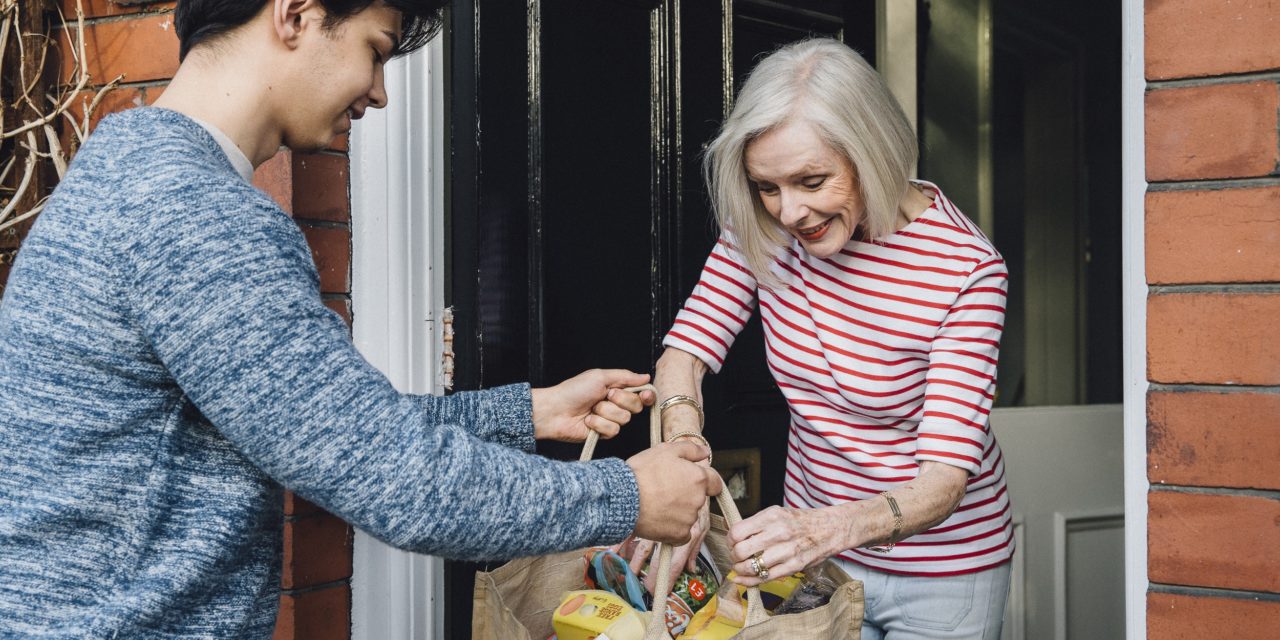We are facing an existential challenge unlike any we have experienced in our lifetimes. We’ve spent the past few weeks adjusting to a new normal. We’re acquiring a new vocabulary and adapting to new norms. We’re learning about epidemiology, hand hygiene, personal protective gear, and ventilators.
We’ve also gained a growing respect and admiration for some we never paid enough attention to. These are the men and women who keep the grocery stores and pharmacies stocked and open, our food supply chains and transportation systems running, and our medical facilities providing care under the most trying circumstances. These essential workers are our new heroes.
This pandemic has transformed us permanently and irreversibly. If we can’t go back, how do we move forward?
Author and activist Arundhati Roy discusses how societies can use crises to catapult themselves into a better future:
“Historically, pandemics have forced humans to break with the past and imagine their world anew. This one is no different. It is a portal, a gateway between one world and the next.”
Roy argues that we have a choice: we can walk through it holding onto outdated ideas and prejudice or “We can walk through lightly, with little luggage, ready to imagine another world. And ready to fight for it.”
Like Roy, just beyond the portal we see the glimmers of a more just world and bolder policymaking. We now have proof that the federal government, under the right circumstances, is capable of acting decisively, in a bipartisan manner, to solve big problems.
Ideas that seemed fantastical and utopian now seem necessary and pragmatic. Many provisions of the CARES Act, such as ensuring a basic income, providing reasonable unemployment benefits, and making available loans on generous terms seemed unimaginable just a few weeks ago.
In addition, there are efforts to broaden access to healthcare and provide more forgiveness and flexibility in how we treat people when they are stressed and under financial duress.
It’s not perfect policymaking, by any stretch, as many immigrants have been left out of the new federal social safety net. Yet, the public now sees that our government can be expansive, inclusive, and generous. Many companies and individuals can be too. Yes, we can care for each other.
We must continue to stand up for essential workers, many of whom are immigrants, who don’t have the luxury to stay home and shelter in place. We must remember these heroes who kept us afloat even without the protections and support that they deserve.
At the most basic level, we now know irrefutably that we are all in this together, that we depend on each other and that our behavior has ripple effects across our community, state, nation, and world.
The question of whether a single person can make a difference has now been definitively answered. Never has our interdependence and mutuality been in starker display than during this public health emergency.
The crisis has also shown us what’s possible when we unite in a shared purpose and leave behind the polarization and deep division that plagues our country. It turns out when you push politics aside and talk about cooperation during a crisis, an overwhelming majority of people say they will work together to overcome it.
The gift of this difficult moment could be a new, enduring story of an interconnected and more caring world. If we can maintain it, this solidarity narrative would serve us long after the pandemic has passed.
So, let’s cross the portal this pandemic has opened for us with a renewed sense of connection, appreciation of our shared destiny, and knowledge of what’s possible when we look out for each other.
Holding on to this will be key when the recession hits, unemployment rises, and political tensions ramp up leading into the November election. Perhaps this pandemic will inoculate us against the plague of division, othering, and scapegoating that we have been suffering from for far too long.
Written by Wendy Feliz, Director, Center for Inclusion and Belonging and Suzette Brooks Masters, Senior Strategist, Center for Inclusion and Belonging.
FILED UNDER: covid-19


